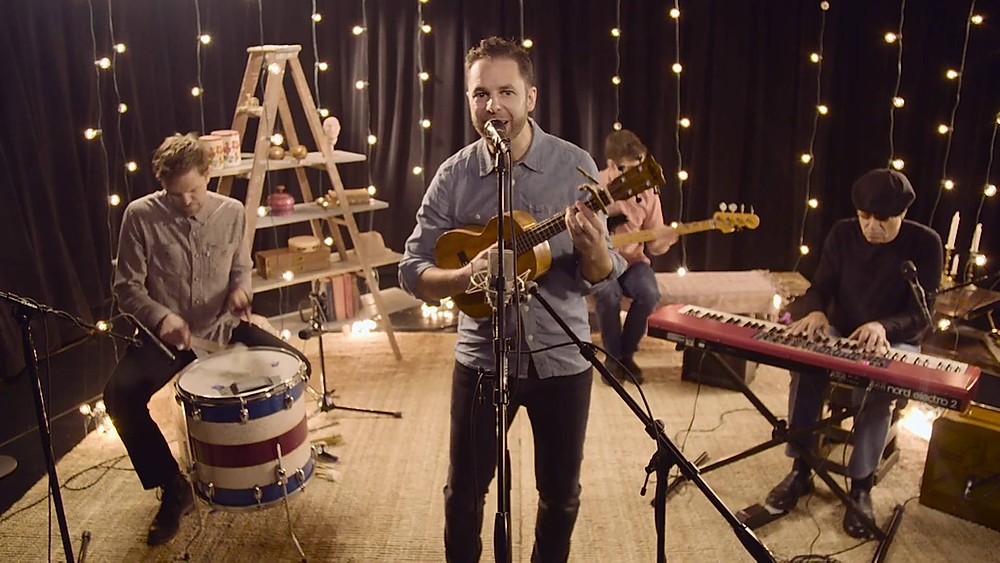Michael Franks was always a master in playing with genres like jazz and folk, samba or swing. You are also a wanderer between (musical) cultures, especially Spanish music. You explored bilingual songwriting with your solo albums and produced successfully international artists. Was Frank’s versatility the crucial factor to make this album?
I don’t know if it was the only crucial factor, but I have always admired the way he navigates between genres. I don’t think he does it intentionally or self consciously, I think it’s a natural manifestation of who he is, and the same is true for me. Hearing Michael Franks (along with some others of his generation) gave me a feeling that it was okay to find my own way through the forest of influences and sounds that I loved and make music that didn’t fit clearly into one genre or another. It’s the message that I find in many great artists: one must be true to oneself.
You take the listener on a journey through Michael Frank’s oeuvre. Which of his albums is your personal favourite?
I love the first Warner Bros. records he made, The Art of Tea, Sleeping Gypsy, Burchfield Nines. Those were the albums that established the freedom, class and quality with which he is associated. There’s freshness and class in those early records; although they are masterfully produced by Tommy LiPuma, there is a sense of humanity and risk in them that endures.
But the first Michael Franks album I ever heard was Dragonfly Summer from the early 1990s. I had it because my father produced two of the songs on that one, “Keeping My Eye On You” and “You Were Meant For Me”. As Michael’s career advanced, he started to make records with multiple producers and Dragonfly Summer had four producers (Ben Sidran, Jeff Lorber, Gil Goldstein, Russ Ferrante) each with their own totally distinct sound and approach. I listened to it on repeat and studied his song writing, the vocal style, and the production. It was a big influence on me. I recorded “You Were Meant For Me” as a tribute to that album and what it represented to me, and also as an acknowledgement to my father for his contribution to Michael’s work.
And I had some distant memory of the song “Your Secret’s Safe With Me” – maybe from the radio when I was a boy.
When I started to prepare the material for Cool School I wanted to represent every period of Michael’s career, but also to focus on the early series of songs from the 1970s. So most of the material I chose is from those first three albums. But I also recorded some songs from the period of the 1980s (One Bad Habit and Skin Dive), 1990s (Dragonfly Summer) and even the last decade (Rendezvous in Rio).
Michael Frank’s songs were always very intimate and atmospheric. By and large, you recorded the songs yourself by cutting the tracks yourself, playing drums, bass, guitar, keyboard, vibes and percussion. Was it important for you to preserve the original intimacy of the songs through this recording process?
The most important thing for me was to find an authentic version of the music. I use this recording process (playing all the instruments, generally alone) because it’s often the most comfortable and natural for me. But I was also aware that Michael’s records are impeccably produced, and while they are, as you say, atmospheric, they also feature some of the finest musicians and arrangers of their time. So I didn’t want to try to recreate that kind of level of production. It’s impossible.
It’s a bit ambitious for one person to try fill the shoes of Steve Gadd, John Guerin, Larry Carlton, Wilton Felder, Joe Sample, Leon Pendarvis, Don Grolnick, Hugh McCracken, Rob Mounsey, all great musicians who played on Michael’s records. But in a way, that is what I try to do on this record – to make credible, musical versions of songs that were originally performed by those masters. I think that’s part of the reason I decided to keep the process very contained, and very personal. I can’t sound like those great players, but if I just play it like myself the music will have its own identity.
You named your album “Cool School” after the same titled Michael Franks’ song. Franks sings in this song “Am I dinosaur? Yeah you bet. I grew up listening to Mose and Chet […]”. Does this album also belong to a dying breed in today’s music business?
Yeah it does! I think “music business” itself is a somewhat out dated concept. When Michael was making his big records, the entire model was different. In a way, Michael was a perfect artist for the height of the record business because his conversational vocal style was beautifully suited for recording, and of course there was a distribution model to support it (and radio to play it!). Today he is still a great artist of course, but the foundation was laid at a time when album had more impact.
Presently we are in an era of singles, performance videos and social media. And that has tremendous value – in fact we are doing this interview because of social media! The artist and fan are more directly connected than ever before. There’s almost no middleman now and that’s empowering on both sides. But there is also something lost. From the point of view of album production, we are losing a little the impact of listening to a coherent collection of songs. From the point of view of the artist, we must think beyond the grooves on the album, beyond the arrangements, beyond the music.
In any case, this album may be a dying breed but I always considered it as a tribute to a somewhat obscure artist by done by a much more obscure artist.
The title track, “The Cool School”, features none other than Michael Franks himself. How did he react to the project and was it difficult to persuade him to join the album?
It was not difficult to persuade him, incredibly. We had some contact about it, and when I sent him my arrangement of the song, he agreed quite quickly to participate. In fact he even wrote a new verse to sing on the song, because the original lyric to “Cool School” was not an obvious duet for two men – it about a man and a woman. So he re-wrote the verse that he eventually sang on my record. It was fantastic to have him sing on the record, but it was just as much of a gift that he wrote a new lyric for the album as well.
He seemed flattered that I wanted to make this album – he said something like “I suppose it’s the highest praise someone can give you, to record an album of all your songs.”
Will there be a Europe tour to the new album, possibly with guest appearances of Michael Franks?
I’ll do a few dates around the release of the album, in Paris (the Sunset April 27-28), and Madrid (Café Central May 4-5-6). I’m working with a band of young French musicians who have been my touring band in Europe for a few years. (We made an album in 2016 called Entre Chien et Loup.) I call them my Groovy French Band™. I expect to come back to Europe later in the year to do more shows. For the moment there is no plan to include Michael, but I know there’s a lot of expectation around that idea, so who knows. He also has a new solo record this year so maybe he’ll tour that project himself.
As the son of the renowned and multifaceted jazzman Ben Sidran you grew up attending the “cool school” of jazz. You were six years old, when you wrote your first song, your first instrument teacher was none other than Clyde Stubblefield – with hand on heart: Could you ever imagine a career outside the music business?
I really never did imagine anything else! I studied history and Spanish at the university, and my interests are broader than just making music, but I knew I would work in and around music. I never thought about it until I was much older. Today I think the question is less about the music business and more about the “culture business” or even just the “area of popular culture” because I’ve become interested in journalism a bit (I have a podcast called The Third Story in which I interview musicians, artists, and members of the “creative class”). But I never thought about getting a serious job – I don’t even know if I could do it now, after so long.
With the experience of six solo releases and as a producer of numerous albums and Academy Award and Grammy winning songs: What characterizes a good song and what are the main virtues of a good producer?
This is one of the things I am investigating in my interviews. I don’t know if it has an answer. If we knew the answer, everyone could do it and there would be no mystery. A good song is an enigma. We constantly chase it. We know it when it happens – as a writer or a listener – but we might not know why. Maybe it’s something familiar. Maybe it’s something surprising. Generally I think good songs have a feeling of inevitability to them, something familiar but also innovative.
As for producers, do you know the joke? If you ask 10 producers what they do, you will get 11 answers. There is no definitive way to produce. Each producer must find their own way, just like an artist, to access the best in the music. Some producers have a specific creative vision, others are more like psychologists, others are like coaches, and others are like gurus.
I was quite fortunate to see many great producers work as a child. Tommy LiPuma, Ricky Peterson, Gil Goldstein, Butch Vig, my father… and nobody worked the same. Everyone was different, but totally themselves.
When I produce I don’t know if I have a philosophy. I love being in the studio. And I love those moments when everything just turns on and you can feel it. It’s a kind of high – like a drug.
A last question: Of the many musicians you are compared to, the name Donald Fagen is mentioned time and again – not least in case of your last album “Mucho Leo”. Could you imagine to do a Donald Fagen tribute album in the future?
Wow. Now that is some sacred ground. I don’t know. I have thought about which other artists I would do tributes to. I suppose someone will have to do a Donald Fagen tribute album. Who knows, maybe one day I’ll say that “someone is me”. It’s an incredibly flattering question.
For the moment I’m focussed on writing a new collection of original songs for my next album.
Photo: Leo Sidran
This interview was first published on June 14, 2018.

